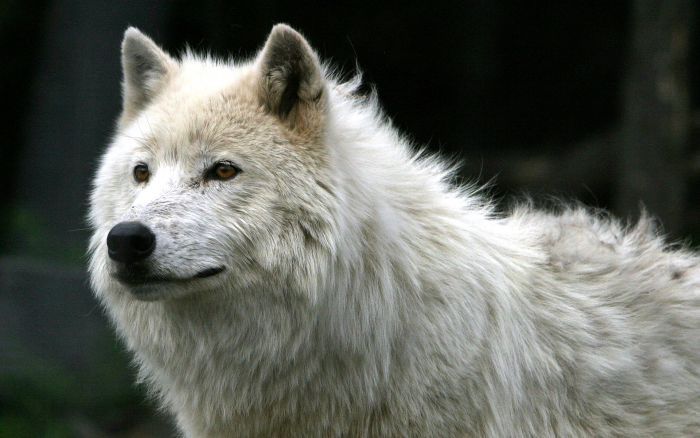|
|
Gray Wolf
|
In 2005, 39 subspecies of gray wolf were recognised, including the red wolf and two subspecies of domestic dog, Canis lupus dingo and Canis lupus familiaris. Wolf subspecies are divided into two categories:
"Northern wolves": large-sized, large-brained wolves with strong carnassials which inhabit North America, Europe and northern Asia.
"Southern wolves": native to North Africa, the Arabian Peninsula and South Asia. They are characterised by their short fur, small brains and weak carnassials. They may represent a relict population of early wolves, as they closely resemble fossil European wolves, and the rate of changes observed in their DNA sequences date them to about 800,000 years, as opposed to the American and European lineages which stretch back only 150,000. The vocalisations of southern wolves have a higher proportion of short, sharp barking, and they seldom howl. It is likely that dogs and dingoes stem from this group.
Wolves in Central and East Asia are intermediate in form and size to northern and southern wolves. Differences in brain size are well defined in different wolf populations, with wolves in northern Eurasia having the highest values, North American wolves having slightly smaller brains, and the southern wolves having the smallest. Southern wolves have brains 5–10% smaller than northern wolves. Though different in behaviour and morphology, northern and southern wolves can still interbreed: the Zoological Gardens of London for example once successfully managed to mate a male European wolf to an Indian female, resulting in a cub bearing an almost exact likeness to its sire.
|
|









